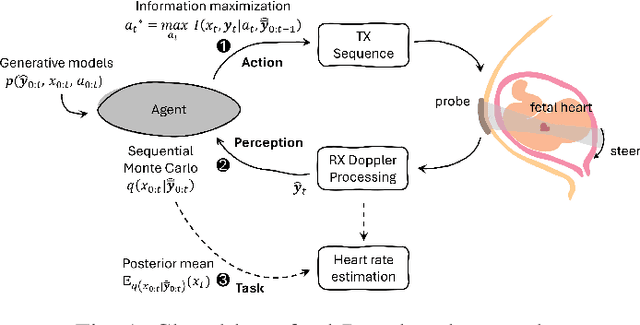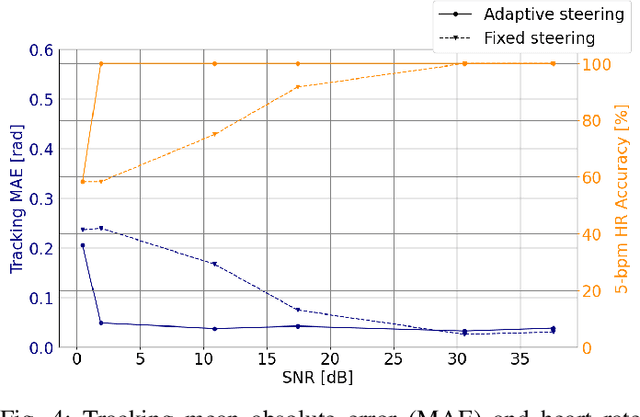Beatrice Federici
Active Inference for Closed-loop transmit beamsteering in Fetal Doppler Ultrasound
Oct 07, 2024



Abstract:Doppler ultrasound is widely used to monitor fetal heart rate during labor and pregnancy. Unfortunately, it is highly sensitive to fetal and maternal movements, which can cause the displacement of the fetal heart with respect to the ultrasound beam, in turn reducing the Doppler signal-to-noise ratio and leading to erratic, noisy, or missing heart rate readings. To tackle this issue, we augment the conventional Doppler ultrasound system with a rational agent that autonomously steers the ultrasound beam to track the position of the fetal heart. The proposed cognitive ultrasound system leverages a sequential Monte Carlo method to infer the fetal heart position from the power Doppler signal, and employs a greedy information-seeking criterion to select the steering angle that minimizes the positional uncertainty for future timesteps. The fetal heart rate is then calculated using the Doppler signal at the estimated fetal heart position. Our results show that the system can accurately track the fetal heart position across challenging signal-to-noise ratio scenarios, mainly thanks to its dynamic transmit beam steering capability. Additionally, we find that optimizing the transmit beamsteering to minimize positional uncertainty also optimizes downstream heart rate estimation performance. In conclusion, this work showcases the power of closed-loop cognitive ultrasound in boosting the capabilities of traditional systems.
 Add to Chrome
Add to Chrome Add to Firefox
Add to Firefox Add to Edge
Add to Edge